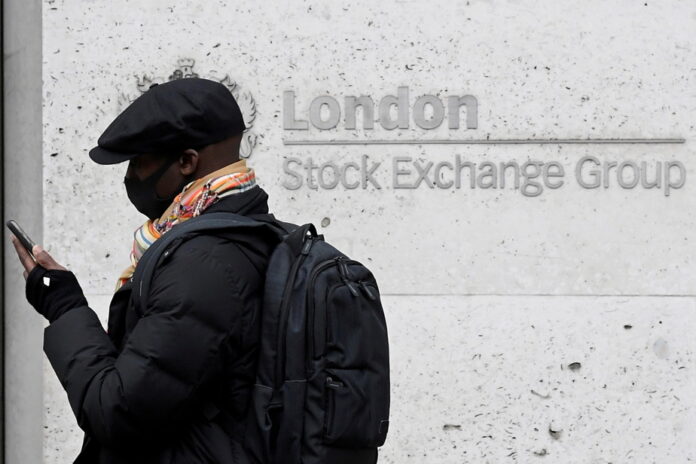(New York) Risk aversion dominated on Tuesday in the trading rooms which again put pressure on the banking sector pending decisions by the American and European central banks on their interest rates.
Fears of a global recession also weighed heavily on the oil sector.
Faced with several contradictory indicators for monetary policy, European markets fell 1.45% in Paris, 1.23% in Frankfurt and 1.24% in London.
On the one hand, inflation rose again in April in the euro zone, interrupting a series of five consecutive monthly declines, and on the other hand, the conditions for granting loans tightened in the first quarter, according to the Bank Central European (ECB).
The data “makes a 25 basis point rate hike even more likely” at the institution’s meeting on Thursday, said DWS economist Ulrike Kastens.
“The ECB remains data dependent and further rate hikes are likely to be considered. She should reaffirm it “Thursday, adds the expert.
The Frankfurt institution has raised rates by 3.50 percentage points since July 2022 as part of an unprecedented campaign of monetary tightening aimed at combating inflation.
On the New York Stock Exchange, renewed concerns over the fate of US regional banks sent indices tumbling: the Dow Jones and NASDAQ fell 1.08% and the S
In the United States, the Federal Reserve (Fed) is expected to announce on Wednesday that it will raise its key rate by 25 basis points. But the language of its press release and that of Jerome Powell, its president, at a press conference, will be scrutinized by investors who hope for an upcoming break in rate hikes.
The economic context is indeed increasingly gloomy, with slower growth in the first quarter, just 0.3% compared to the previous quarter and 1.1% on an annual basis.
The possibility of a slight recession over the next two quarters is becoming less and less in doubt for the majority of analysts, who only expect a recovery for the last quarter of this year.
Despite JPMorgan’s takeover of First Republic the day before supposedly easing the banking crisis, the sector was again targeted: regional bank PacWest plunged 27.78% and Western Alliance 15.12%. Both stocks have been repeatedly suspended from trading on Wall Street for volatility.
In Europe, the Germans Deutsche Bank (-2.79%) and Commerzbank (-4.16%) like the French BNP Paribas (-2.78%) and Société Générale (-1.79%), finished in the red. In London, the action of the banking group HSBC, on the other hand, climbed by more than 3% after the announcement of a net profit having almost quadrupled over one year in the first quarter.
Shares of U.S. online tutoring company Chegg plunged more than 48% on Wall Street, after warning that its revenue had suffered from the emergence of artificial intelligence interface ChatGPT.
Oil prices widened their losses as concerns over a possible global recession continued to weigh on crude demand ahead of the Fed’s monetary policy decision.
A barrel of Brent from the North Sea for delivery in July, lost 5.03% to 75.32 dollars.
Its American equivalent, a barrel of West Texas Intermediate (WTI), for delivery in June, fell 5.28% to 71.66 dollars, the lowest in more than a month.
The dollar lost ground against the euro, the renewed tension within the American banking sector erasing the rebound that the greenback had offered itself earlier. The euro thus gained 0.22% to 1.1000 dollars for one euro at 4:40 p.m. (Eastern time).
Bitcoin was up 3.93% at $28,769.















